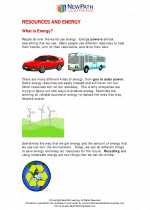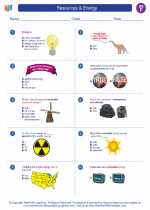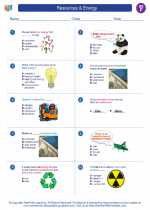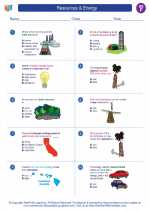Resources & Energy
Resources and energy are essential components of modern society. Understanding the various types of resources and how they are used to generate energy is crucial for sustainable development and the preservation of our planet's natural resources.
Types of Resources
Resources can be broadly classified into renewable and non-renewable resources. Renewable resources are those that can be replenished naturally, such as sunlight, wind, and water. Non-renewable resources, on the other hand, are finite and cannot be easily replaced, such as fossil fuels like coal, oil, and natural gas.
Energy Generation
Energy can be generated from various sources, including fossil fuels, nuclear power, and renewable sources such as solar, wind, and hydroelectric power. Each of these sources has its own advantages and drawbacks in terms of availability, environmental impact, and cost.
Study Guide
- What are renewable resources? Provide examples.
- Explain the difference between renewable and non-renewable resources.
- Describe the process of energy generation from fossil fuels.
- What are the advantages and disadvantages of using renewable energy sources?
- Discuss the environmental impact of different energy generation methods.
- Explain the concept of sustainable energy and its importance for the future.
Understanding resources and energy is crucial for making informed decisions about energy usage and environmental conservation. By studying this topic, you will gain a deeper understanding of the impact of human activities on the planet and the potential solutions for a sustainable future.
[Resources & Energy] Related Worksheets and Study Guides:
.◂Social Studies Worksheets and Study Guides Sixth Grade. Resources & Energy

 Worksheet/Answer key
Worksheet/Answer key
 Worksheet/Answer key
Worksheet/Answer key
 Worksheet/Answer key
Worksheet/Answer key
